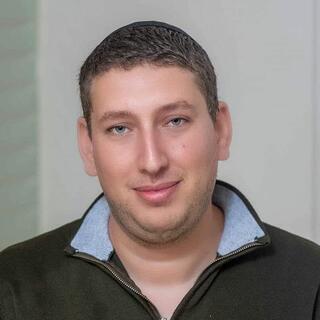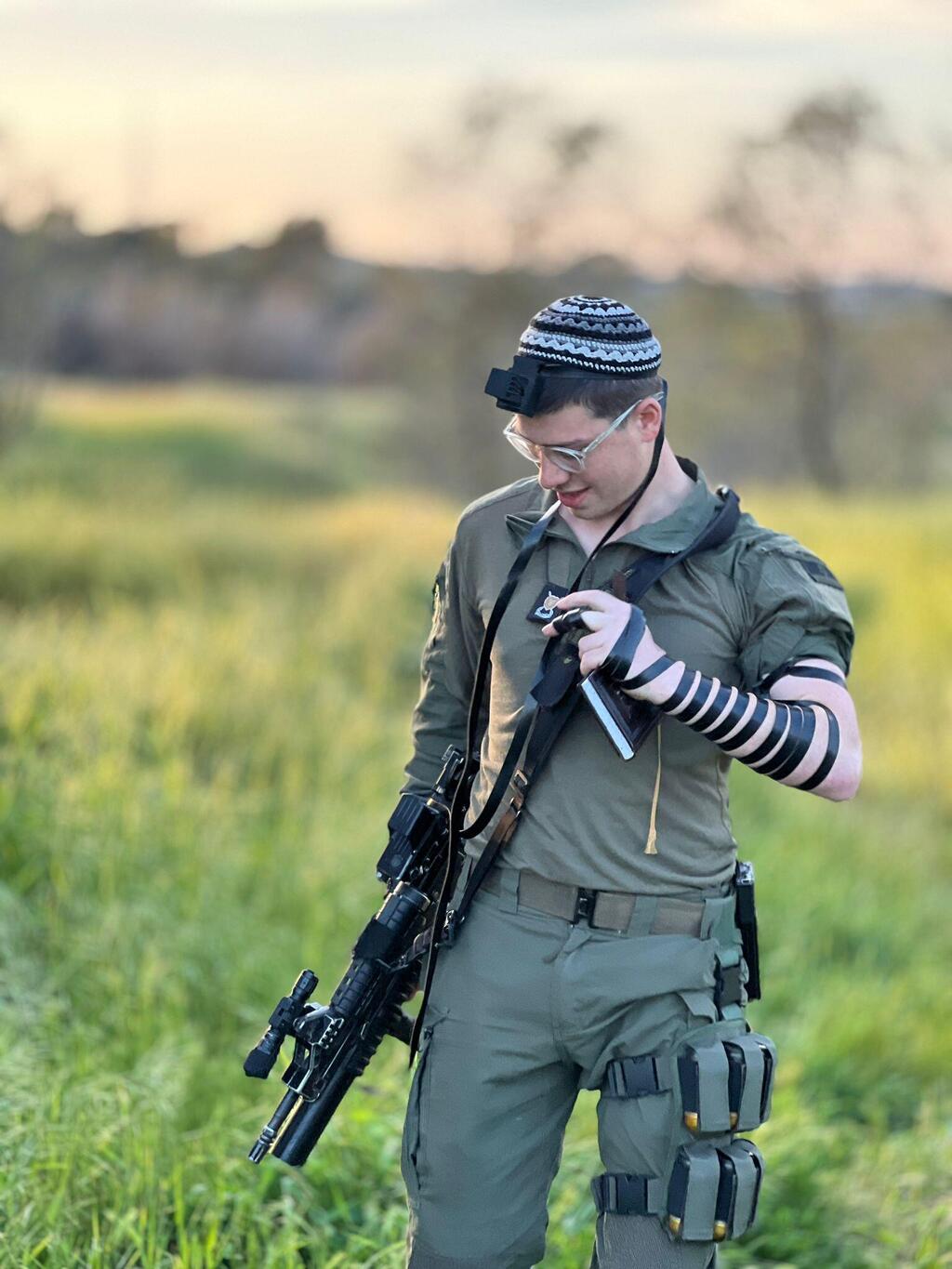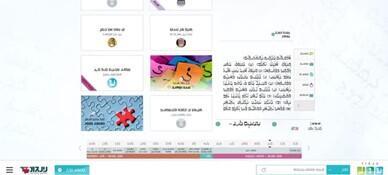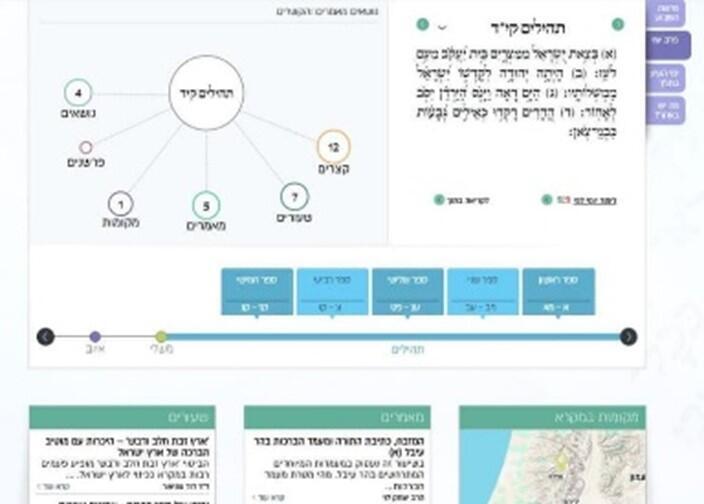Getting your Trinity Audio player ready...
The family of the fallen lone soldier Sgt. Ilan Cohen, who fell in the Gaza Strip during the war, is calling on Jews everywhere to help uniquely commemorate him: translating the Bible and making its explanations accessible in Spanish.
Ilan moved to Israel from Argentina and enlisted in the IDF, serving as a combat soldier in the 202nd Paratroopers Brigade. He was killed in battle on May 15, 2024, a day after Israel's 76th Independence Day, in the northern Gaza Strip. Ilan’s parents explain that he loved reading books about world geography in general, particularly about the land of Israel, which he loved dearly.
7 View gallery
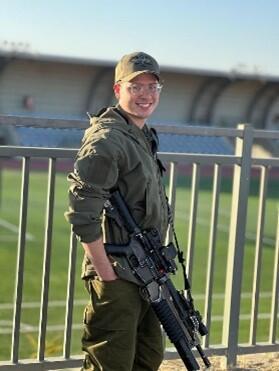

'He really knew Israel incredibly well for someone who only lived here for a year and a half!'
(Photo: Courtesy of the family)
The Herzog College Tanakh website translates, illustrates, and explains the Bible in Hebrew and English, and now it is being fully translated into Spanish, in a project to cherish Ilan's memory with an international crowdfunding campaign. His friends and family are excited that this website, widely used in Jewish schools throughout Latin America and by thousands of Spanish speakers in Israel and around the world, will be dedicated to Ilan’s memory.
Inspired to make Aliyah
"It was clear to Ilan that he would make Aliyah", said his friend Uri Stofenmacher. He came to learn Torah in a Chabad Yeshiva in Migdal Ha’emek, and the Rabbis there suggested that he speak with me because we came from a similar background and shared similar goals: to learn in yeshiva and then go to university.” Over the years, they developed a strong connection.
7 View gallery
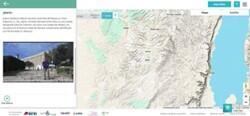

Herzog’s Tanakh website in Spanish; 'Until recently, Jews who wanted to know anything about the Bible had to rely on Christian websites'
(Photo: Screenshot)
7 View gallery
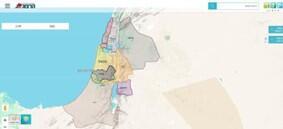

Herzog College’s Tanakh website includes many maps, including the division of Eretz Yisrael between the Israelite tribes
(Photo: Screenshot)
“Every day in yeshiva, we would speak for hours, and we continued these deep conversations afterward by telephone”, he explained. "For Ilan, it was always important to stay in touch with people. He was always writing to me 'How are you? How do you feel? What are you doing these days?' If it was up to me, I would have stopped messaging him over time, but Ilan invested in his friendships.
"We met almost every month in Jerusalem and spent Shabbat together. We had many mutual friends from the yeshiva and elsewhere. He read many books about Israel, and he met up with old friends from Argentina who were learning in Yeshivat HaKotel. These meetings had a significant effect on him.”
Walking and working the land
Stofenmacher explained that Ilan adored touring around Israel, feeling its history through the soles of his feet. "Twice every month he would travel to some random site in Judea and Samaria, and he traveled throughout the country. He knew Israel incredibly well for someone who only lived here for a year and a half. I made Aliyah four years ago, and I don’t know half the places that he knew!"
At the end of his first year in yeshiva, Ilan returned to Argentina for his brother's wedding and stayed there for a month and a half. Upon his return to Israel, he made two critical decisions: to prepare to study economics and geography at university and to switch to the Har Bracha Yeshiva.
"He studied in Har Bracha for three or four months”, said Stofenmacher. "During this time, he intensified his learning of Tanakh and philosophy, completing half of "Moreh Nevuchim." He considered whether to wait and enlist with his yeshiva cohort, but decided to volunteer and enlist on his own as a lone soldier. He spent a short time learning in a pre-military academy in preparation for drafting to the IDF, and spent the last 10 days before joining the army working the land on a sheep farm in Nachliel."
Explaining the Tanakh in Spanish
“I had this idea 15 years earlier”, explains Rabbi Shmuel Kornblit, himself an immigrant from Argentina and director of the Spanish-language education programs at Herzog College. “I realized that there was no Spanish translation of the Tanakh on the internet. This meant that any Spanish speaker who wanted to understand the Bible was turning to Christian websites.”
Rabbi Kornblit decided to accept the challenge. “I approached various publishers and asked for permission to upload their Spanish translations of the Tanakh to the internet. There was no digital version, so I spent almost three years scanning each page of the translation individually and uploading it, without any assistance.”
In 2016, Kornblit approached Herzog College and suggested a partnership. "I came to the conclusion that it was not enough to create a digital version of the Bible text in Spanish, but we also needed its commentaries, articles, and explanatory materials. At that time, Herzog College was building their amazing 'Google of the Tanakh' resource in Hebrew, including integrated Google maps of Israel, and I wanted to create this in Spanish too."
The first version of the Spanish Tanakh website went live in 2020. "This was the first version with only some chapters," explained Korblit. "We added material from the Spanish Bible Contest, plus 5-minute videos and short podcasts that added educational and Zionist messages about the Tanakh text.
Kornblit adds with emotion in his voice: "One of the things that I am most proud of is the amazing interest in the website that we have witnessed in Latin America. Today there is almost no Jewish school – religious, secular, conservative, or reform – where we have not trained teachers to use the website. At the end of the day, no Jewish school feels comfortable sending its students to read the Bible in Spanish on a Christian website."
Rabbi Kornblit attended Ilan Cohen’s funeral and went to visit his family during the shiva. That’s when he realized how suitable it would be to commemorate Ilan with this project. "His mother told me that he loved geography lessons and would always read the textbook for each year in just two or three weeks! His friends from Har Bracha told me that reading the Tanakh was one of the reasons that inspired Ilan to enlist in the IDF. Of course, the Bible is full of stories of Israel’s battles and how the land was captured. I understood that these ideas were all connected, and I suggested to the Cohen family that completing the Tanakh project would be an appropriate way to keep Ilan’s memory alive.”


